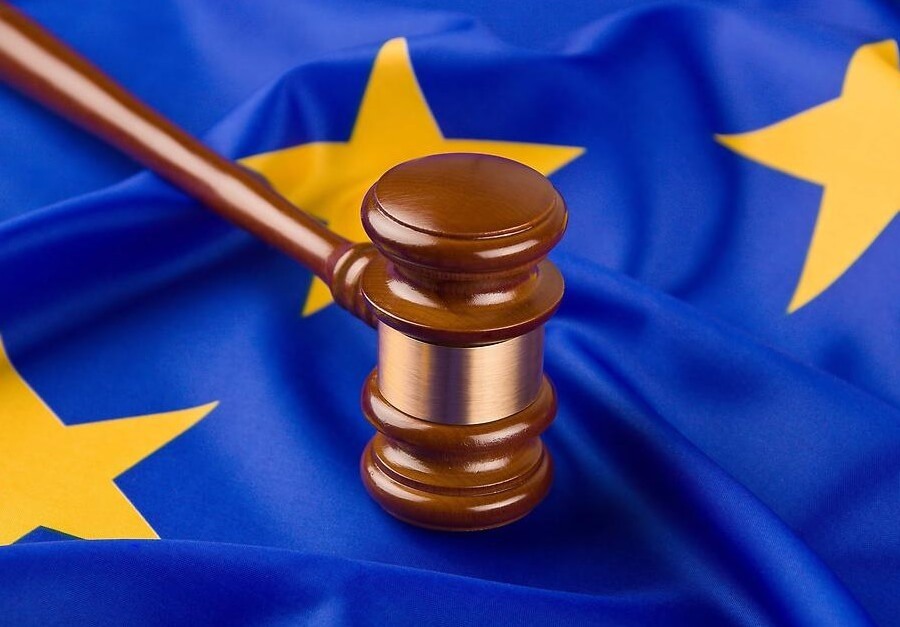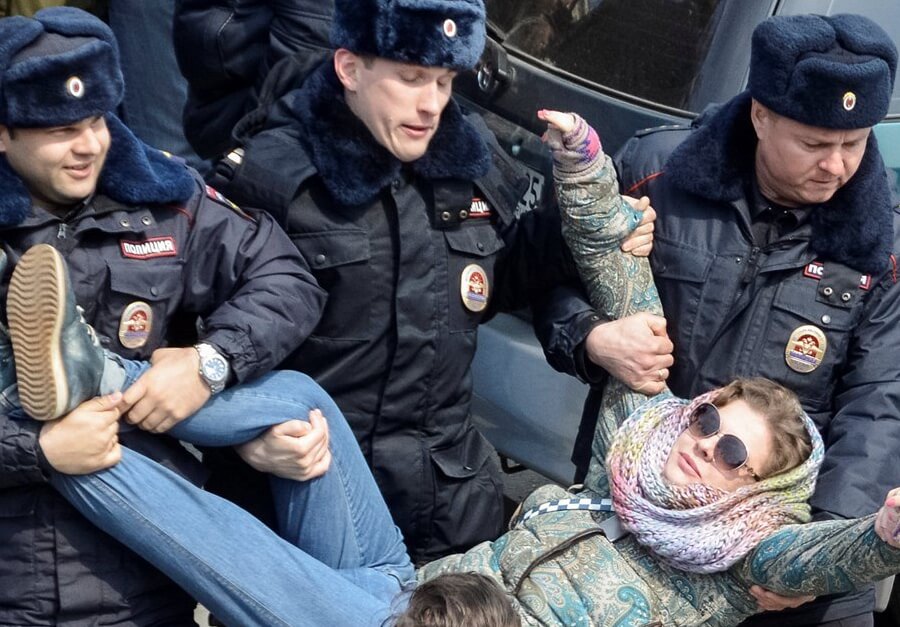Interpol: Belarusian opponents are persecuted abroad
In a suburb of Warsaw, on September 12. Sunday is quiet, only disturbed by the music that comes from an apartment. On a call from the neighbors, the Polish police knocked on the door. The young man who opens the door is named Makar Malakhouski. He is a Belarusian student, holder of a Polish humanitarian visa. He doesn't know it yet, but he is also on the Interpol wanted list. When he presented his papers, a simple warning for disturbance turned into an arrest. The young man spent 48 hours at the police station while the Polish government unraveled the case. Upon his release, the Polish Minister of the Interior himself explained: "The arrest of a Belarusian citizen in Piaseczno is the result of a new attempt by the Belarusian regime to make political use of Interpol's red notices."
For months, the Belarusian opposition in exile has denounced Minsk's misuse of the international police organization. Dozens of people involved in the protests that challenged Alexander Lukashenko's regime last year have been persecuted. "Belarus uses Interpol mechanisms to conduct international searches and obtain information on people persecuted for their participation in the protests that followed the August 2020 presidential election," assures Svetlana Tikhanovskaya in an open letter to the organization. She calls for an end to the consideration of requests and notifications from the regime.
Fictitious numbers of criminal cases
Like other big names of the opposition abroad, the "leader of democratic Belarus'' could herself have been placed on the wanted list if Interpol had accepted Minsk's request. The misuse of the international organization is especially harmful to the almost unknown people. "Belarus sends search requests for people who are not being prosecuted or who are being prosecuted for unverifiable offenses. The requests contain deliberately misleading information: fictitious numbers of criminal cases, or even fabricated cases," explains the office of Svetlana Tikhanovskaya.
Makar Malakhouski, the student arrested in Poland, is accused of hitting a police officer with his car. The scene in question was filmed. The young man can be seen speeding up to escape and avoiding the uniformed men coming towards him at the last moment. The name of the policeman who was supposedly hit and then treated does not appear on any hospital register. Valiantsin Ulasik, 37, was arrested in Hungary this summer as he was crossing the country to go on vacation from Poland, where he lives in exile. Officially, the trade union activist is wanted by Interpol for non-payment of alimony to his ex-wife. Since his arrest, he is still being held in a detention center, awaiting a decision on his possible extradition to Belarus. Yauhen Malakhouski (unrelated to the student arrested in Poland) was luckier. This administrator of a Telegram channel on Minsk was arrested in Slovakia, as he was about to fly back to Kiev, his city of exile. He was released a few hours later.
Many of them have left their country after a short stay in prison or threats of prosecution. "With the instrumentalization of Interpol by Lukashenko, we find ourselves in danger all over the world after having tried to seek refuge outside Belarus," the Belarusian community in France said in a letter to the Secretary General of the institution.
"I don't risk going to questionable countries"
Officially, Article 3 of INTERPOL's Constitution prohibits the use of the organization for political reasons. Belarus has already been warned several times and, in case of repeated violations, the country could be suspended. But the Interpol national office in Minsk is working to circumvent the rules. Officials under the umbrella of the Belarusian Ministry of the Interior present the cases referred to the General Secretariat in the most flattering light. In a recording obtained by Bypol, a foundation of former law enforcement officers who have defected, a member of the national office is heard advising a police officer : "In cases where political motivation is evident, the General Secretariat does not accept inclusion on the wanted list." After these general considerations, he moves on to concrete cases. "For this man who painted white-red-white flags [a symbol used by the Belarusian opposition, editor's note] on walls, for example, you must not mention the flag, otherwise they will understand that it is political. It's better to just talk about property damage. Presented like that, it can pass."
In the face of such alarming information, opponents are taking precautions. "I travel in the European Union, but I don't risk going to doubtful countries like Turkey. I don't know what could happen to me there," says Aliaksandr Opeikin, the executive director of the Belarusian Sports Solidarity Foundation (BSSF), an association that brings together champions who have stood up against Lukashenko. He and the BSSF's lawyer went ahead and contacted Interpol to inform them about his profile as an opponent accused of endangering national security. "They told me that if Minsk tried to put me on the wanted list, the request would be invalidated. But I don't know if I was on it before I notified them."
"A very powerful organization to gather information."
Ales Michalevic, the lawyer who helped him with his case, was himself the subject of Interpol's misuse by Minsk ten years ago. "This practice is old, it's a form of tradition for them to track down opponents abroad with red notices," he says. In 2011, a few months after being a presidential candidate - already against Lukashenko - and then put in a cell, he moved to the Czech Republic. "I must have been put on the list at that time, despite my political refugee status. I was arrested several times afterwards in airports, in Warsaw and in New York." It was the Prague prosecutor's office that eventually blocked his extradition, after an investigation.
"The regime uses Interpol, not only to try to arrest opponents. It is also a very powerful organization for gathering information," says the former candidate. Today, this is what worries me the most." According to Bypol's information, the Interpol office in Minsk regularly sends requests for information on Belarusians abroad. In the organization's databases, there is a lot: legal status in the host country, landed property, vehicle, etc. This is more than enough to target opponents in their host countries. To solve the problem, the office of Svetlana Tikhanovskaya sees only one solution: the suspension of the consideration of the regime's requests.
Published at liberation.fr on November 23, 2021 at 7:15 am
by Nelly Didelot





